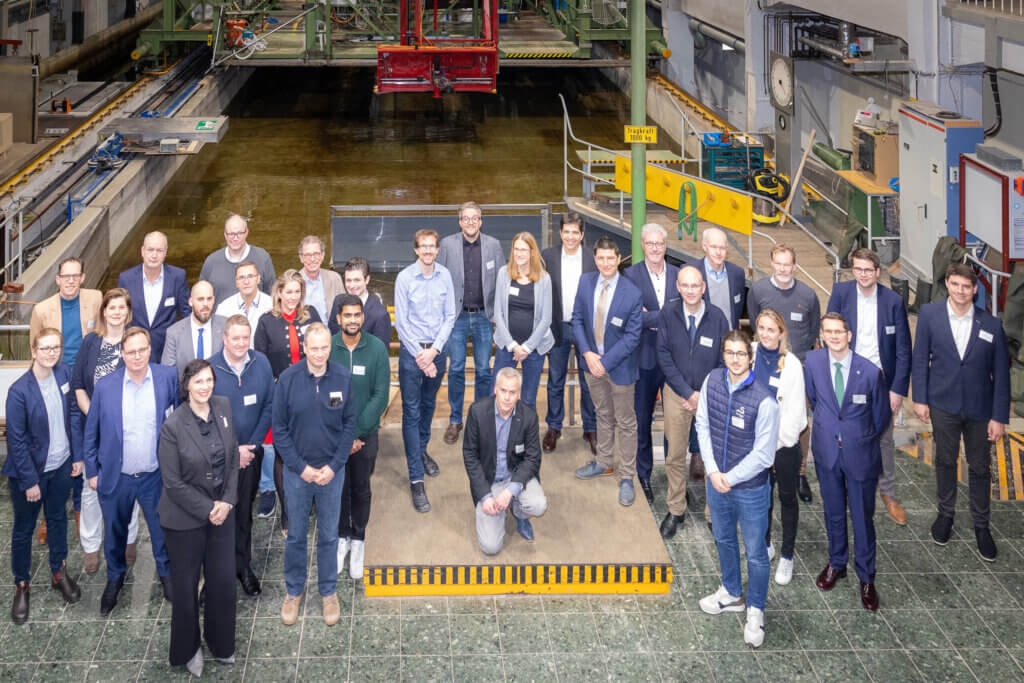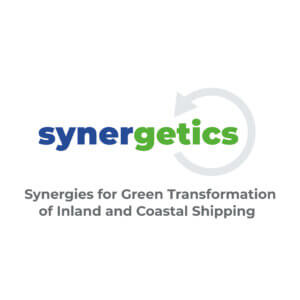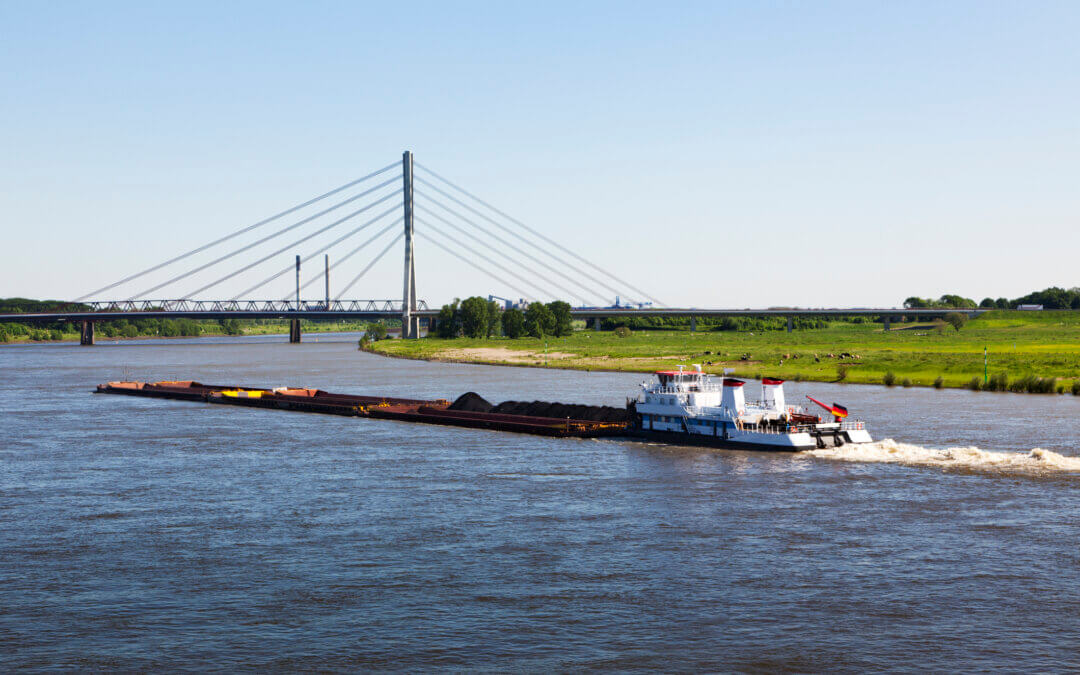The decarbonisation of inland and coastal shipping is the goal of the EU project Synergetics. To achieve this goal, existing fleets are to be converted from conventional diesel technology to non-fossil fuels.
At the kick-off meeting, 16 project partners from eight EU countries met in Duisburg at the beginning of February. They defined the work packages on the premises of the DST Entwicklungszentrum für Schiffstechnik und Transportsysteme e.V. (Development Centre for Ship Technology and Transport Systems) and drew up an initial project roadmap. During the 42-month project period, the Synergetics team will, among other things, retrofit four conventional cargo ships in the spirit of greening and sustainability. This retrofit approach aims to prove that retrofitting existing fleets can be technically, economically and environmentally viable.

The project is deliberately “technology open”. However, the hydrogen technology of ARGO-ANLEG can play out its essential advantages here: The hydrogen can be “burned” via hydrogen combustion engines as well as via fuel cells. Fuel cell technology has the advantage of being 100 percent emission-free. ARGO-ANLEG brings the know-how and technology from already realised hydrogen projects in the shipping industry to Synergetics.
ARGO-ANLEG is involved in the project as an idea provider, consultant, technology and production partner. With the know-how from the Elektra project, ARGO-ANLEG contributes practical solutions and technologies that are already in use and have proven their suitability for everyday use. In addition, ARGO-ANLEG has mature and operational H2 refuelling stations and H2 refuelling systems. In particular, ARGO-ANLEG’s “Multiple Element Gas Container (MEGC)” swap container refuelling system could also be used in this project.
In addition to technical implementation, the supply chain is a central field of work for ARGO-ANLEG. “Fine-tuned supply chains and interfaces are a key to the success of the project,” says Jan Andreas, Managing Director of ARGO-ANLEG GmbH. “The energy logistics chain is at least as important as the transformation of marine propulsion technology in existing fleets and in new construction.”
ARGO-ANLEG is relying on the concept of the already realised ARGO-ANLEG MEGC systems. In the project “H2 supply concept for inland navigation” that is already presented here, work is being done, among other things, on ADR/ADN approval of the MEGC (i.e. approved for road and shipping traffic), which will then be based on standardised 20-foot ISO dimensions and thus be ADR and ADN compliant.
With MEGC solutions including technical integration and approval of the H2 drive train, ARGO-ANLEG ships can be converted to completely emission-free operation.
In addition to the technology on board, ARGO-ANLEG can also supply the entire refuelling infrastructure from a single source. This concerns small mobile units as well as large stationary refuelling stations, which can be transported by truck with the ARGO-ANLEG MEGC (126kg H2) or then the “20-foot ISO container” based MEGC filled with up to 500bar and 500kg hydrogen -on swap bodies. These MEGC solutions are also ideal for fast and safe delivery and operation of filling stations for other segments such as the automotive sector (heavy goods vehicles, public transport, construction sites, etc.).
The experiences from the ongoing Synergetics project are to be collected in a catalogue of measures, which will also serve as a recommendation for action for political and economic decision-makers.
In addition to Synergetics, the ARGO-ANLEG team is also involved in another EU project: “Seanergy” aims at the CO2-neutral operation of ports. “With our participation in these two trend-setting projects, we are making an important contribution to decarbonisation in the logistics sector,” says Jan Andreas. “We have already proven that our H2 technologies work with market-ready solutions. Within the framework of the EU projects, we can now further develop these in exchange with the project partners and test and deploy them on a larger scale.
Further information on the Synergetics project 
 The SYNERGETICS project receives funding from Horizon Europe, the European Union’s key funding programme for research and innovation, under grant agreement No 101096809.
The SYNERGETICS project receives funding from Horizon Europe, the European Union’s key funding programme for research and innovation, under grant agreement No 101096809.


